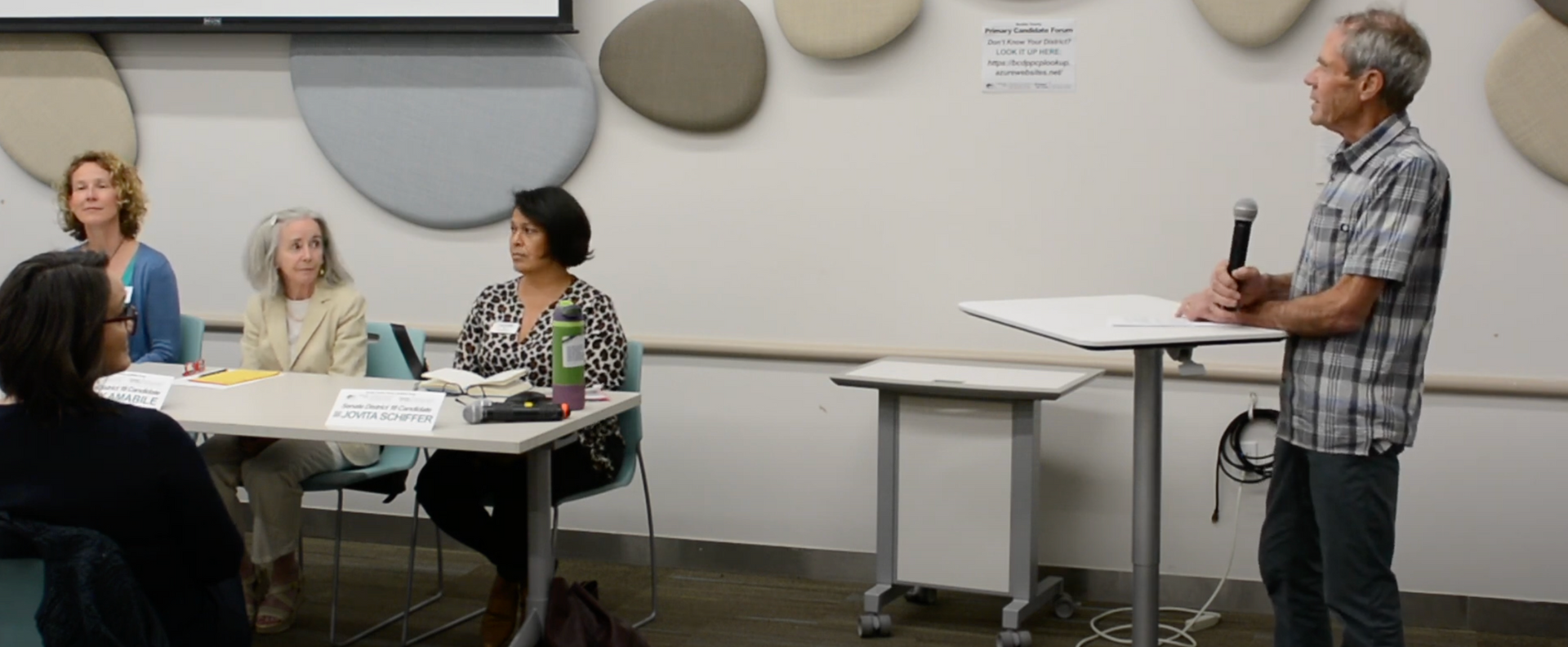Boulder Needs You! Volunteer to Serve on Board or Commission
Concerned About What's Happening?
Join PLAN-Boulder County
Boulder works best when committed citizens get involved. Have you ever thought about serving on a city board or commission, this is your opportunity. Applications for a position on one of the city's many boards and commissions are open until Monday, Jan. 30. You can learn more and apply on the City's Website. Boulder needs you!
There are vacancies on the following boards and commissions:
- Arts Commission
- Beverage Licensing Authority
- Board of Zoning Adjustment
- Boulder Junction Access District - Parking Commission
- Boulder Junction Access District - Travel Demand Management Commission
- Cannabis Licensing Advisory Board
- Design Advisory Board
- Downtown Management Commission
- Environmental Advisory Board
- Housing Advisory Board
- Human Relations Commission
- Landmarks Board
- Library Commission
- Open Space Board of Trustees
- Parks and Recreation Advisory Board
- Planning Board
- Transportation Advisory Board
- University Hill Commercial Area Management Commission
- Water Resources Advisory Board

ADU's and Occupancy
City Council appears poised to make significant changes accessory dwelling unit (ADU) regulations. Last night the council passed 1st reading that is being proposed as Phase I of the proposed ADU overhaul. Phase 1 will end the saturation limits, increase the allowed unit size, and includes some code clean ups such as how building square footage is calculated. The public hearing for this ordinance is expected to be Feb. 21.
Planning Board, Housing Advisory Board and City Council have been discussing these changes, and the Zoning Board of Adjustment will discuss them at their upcoming meeting in February.
Now is the time to make your voice and opinion heard. There is an open survey with information about the proposals at BeHeardBoulder, or contact City Council directly.
What is being proposed?
The HAB recommended the following six changes with respect to building Accessory Dwelling Units (ADUs). Elimination of saturation limits and size limits and code cleanups such as how building square footage is calculated have been taken up as Phase 1. The remaining recommendations will form Phase 2.
1. Eliminate Saturation limits: This would eliminate caps on the number of ADUs that can be built in a neighborhood (called saturation limits) and would allow one or two ADUs in LR-1 and LR-2 low density, single family zoned lots for a total of three homes per property. For reference: LR-1 and LR-2 low density, single family zoned neighborhoods in Boulder currently allow one dwelling unit (house) per lot and roughly two ADU's per average city block. The limit's intent is to preserve the quieter, less-busy nature of single family areas. The current saturation limit is one ADU allowed, every 300 ft., or roughly two per standard 600-foot block.
2. Eliminate parking requirements for ADUs: Under the new proposal, ADU residents would occupy parking spaces on the street. Off street parking would not be a requirement
3. Eliminate minimum lot sizes for ADUs:
Currently the minimum size to have an ADU is 5000 sq. ft
4. Revise ADU size limits:
The proposal is to increase market rate ADU size limits to 650 square feet (from 500) and allow additional size/square footage for “affordable” ADUs to 900 sq. ft., which is roughly the size of many older two bedrooms homes in Boulder.
5. Create pre-approved ADU floor plans
6. Streamline ADU review process: This would allow the primary house and ADU to be built to be built at the same time. At present, the primary house is required to be expanded/constructed to required square footage before permitting and construction starts on the ADU.
Note existing code allowances with regards to investor groups and ADU's: There are presently no recommendations to change any codes with respect to Limited Liability Corporation (LLC's). LLC's are allowed the same rights as an individual homeowner and therefore, at present, any person named on LLC partnership paperwork can qualify as the owner occupant. (ADU owners are required to live on the property and LLC's are given the same privileges as "a home owner"). Also, as it stands now, the "owner occupant" representing the LLC is allowed to live in the affordable unit while renting the front house for market rate. The assertion that no other city in the country has saturation limits has been taken up as a rallying cry for deregulation, but three of the five zones in Chicago that allow ADUs have an annual limit of two per block. This allows the city to judge the effects of a gradual population increase.
Utah’s new law allowing ADUs in any residential zone statewide and stipulating that cities may not regulate or restrict them went into effect in October 2021. However, a provision of the law allows cities to prohibit ADUs in a percentage of their residential areas, which ranges from 25% in most cities to 67% in cities with large universities. Provo, home to Brigham Young University and comparable in population to Boulder, passed a code change that permitted the exemption of up to 67% of its residential areas.
What is the likely outcome of more, bigger ADUs without any assurance of increased affordability?
Occupancy Reform Review
Coming fast on the heels of ADUs is occupancy reform. Despite the fact that the Bedrooms for People initiative was defeated in 2021, it hasn't stopped our city council from working to change Boulder's regulations to allow for more occupants per unit in the city.
City Council has asked staff to research other communities on how occupancy is regulated and share best practices that may inform potential changes to the Land Use Code on occupancy. Staff plans to continue this analysis and share the results with the community and council in coming months.
A City Council study session on the topic is tentatively set for March 9 where council will provide input on what options to further consider.

Concerned About What's Happening? Join PLAN-Boulder County
Are you concerned about what's happening in Boulder and our environment?
PLAN-Boulder County has been protecting and enhancing Boulder County’s unique character and desirability, while at the same time reducing our carbon footprint and environmental impact since 1959. We are a future-focused, citizen-led grassroots activist organization that uses education, political action, and encouragement of good governance to advocate for public—not special—interests. We’re here for you. We’re here for the environment. And we’re here to stay.
Your annual membership supports our work. Join PLAN-Boulder here.
Thank you.





